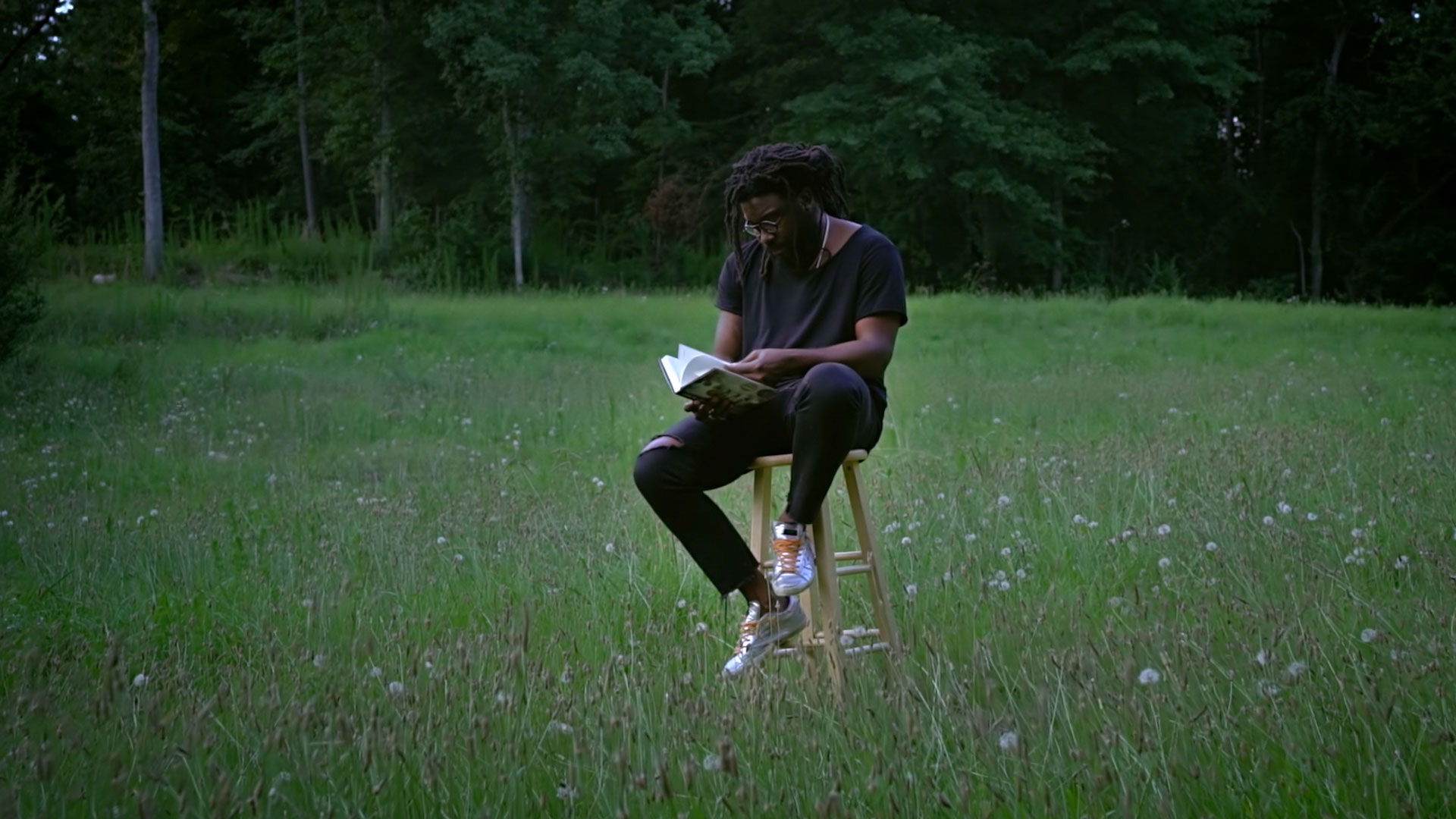As the current cultural conversation suggests, representation is very important. And, in that mission to get more diverse faces on screens and in books, rising literary star Jason Reynolds is a veritable rock star. He’s a hip and insightful emissary for an often shunned or mocked artform: young adult fiction. He’s proof that the genre is far more than just weepy adolescent vampire romance or far off fantasy and science-fiction. Rather, Reynolds focuses on realism, telling the stories of people like him and those he grew up with. It seems simple on a macro level, but it’s something that has a profound impact in practice for both his individual readers and the classification of literary youth fiction as a whole.
Granted, it’s somewhat unfair to put so much weight on Reynolds shoulders. But, as director and cinematographer Kristian Melom’s lovely portrait doc makes clear, Reynolds is more than up for the challenge. This lyrical film not only delves into his process and inspiration (e.g. the common topic of short profile docs), but also broaches larger ruminations on the importance of reading and writing as a whole. It becomes a reminder that art can be a great driver of empathy, and through that empathy, comes understanding and compassion. It feels a bit pollyannaish, I realize, but stories really do have the power to change the world. And, after you finish this engrossing portrait doc, it’s easy to see how Reynolds is making a difference one story at a time, reaching kids by telling his truth.
Visually, the film is flowing and poetic, like Reynolds’s writing, seamlessly weaving verité b-roll with more scripted interview segments. Melom often breaks up the soundbites by showing the overgrown and underserved landscapes of the Atlanta community to match the narrative imagery of many of Jason’s books. The result is compelling across its run-time—never too visually formulaic that it feels rote, but also not so abstract that if comes off as distancing. You could critique the film as being a bit scatter-shot—it’s almost about too many things and attempting to convey too much, but it’s something that easy to excuse as Reynolds makes for a warm and inviting documentary protagonist.
As Melom relates to Short of the Week,
“Going in my goal was to raise the bar in my own storytelling and challenge myself to make a film Jason would be proud of. If you are familiar with his books you know that he masterfully turns the conventions and trappings of writing and storytelling on its head. “Dear, dreamer” at its core is a portrait film but I wanted to see how I could push the documentary form a bit to make something that honored the caliber of Jason’s work.”
Going forward, Melom is developing a series of documentary portraits that will gather a snapshot of the young artists and thinkers of our time who are confronting climate change and other important social issues in their work.

 Ivan Kander
Ivan Kander